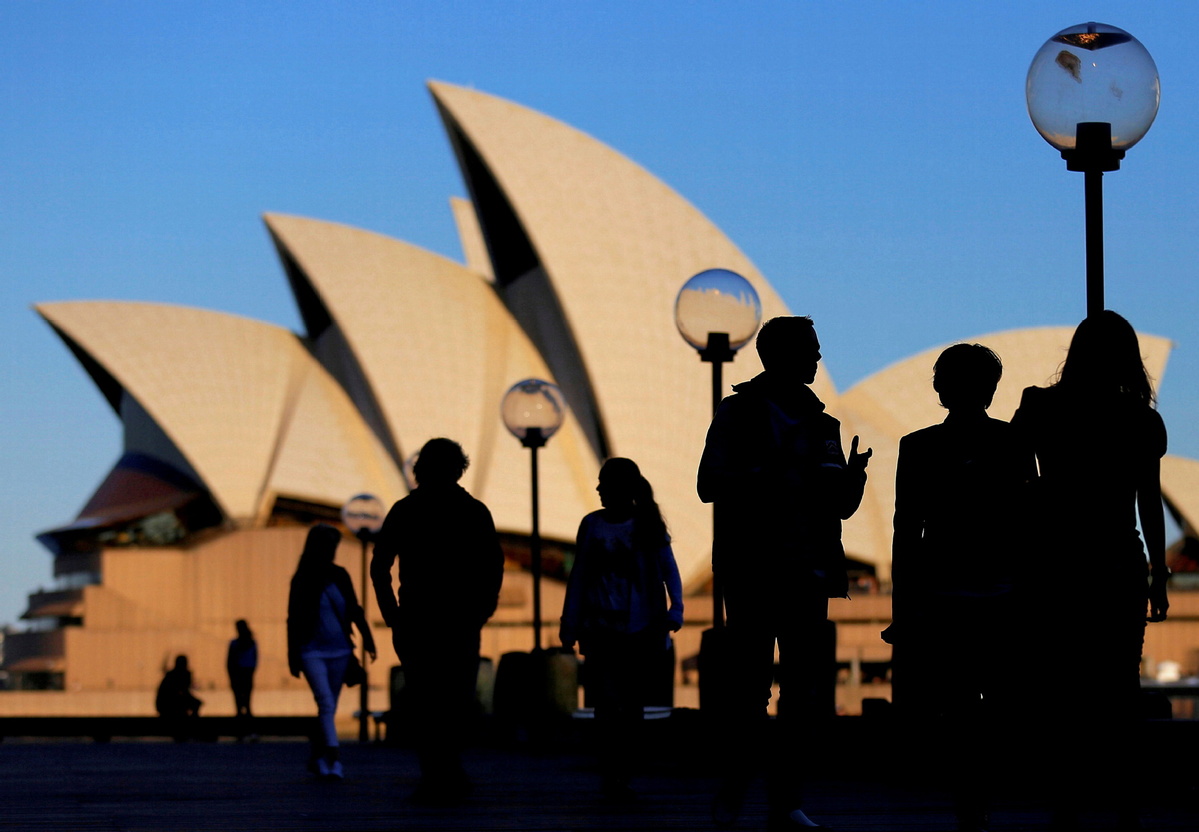Canberra should restore its trust in Beijing
By Karl Wilson | China Daily Global | Updated: 2021-07-27 07:52

Fifty years ago, just days before the secret but historic trip to China by former United States national security adviser Henry Kissinger in July 1971, then Australian Labor opposition leader Gough Whitlam led a delegation to Beijing.
Yet the Australian trip, which included Labor members of Parliament, political advisers and China experts, was condemned by then conservative Australian prime minister William McMahon. McMahon had believed he was following the American line toward China, oblivious to the moves being played in secret by Washington to restore diplomatic relations with Beijing.
On the night of July 5, Whitlam was invited to meet with then Chinese premier Zhou Enlai. According to those who attended that meeting, the two men talked for over two hours, especially on the Taiwan question and what later became the blueprint for Australia's "one China policy".
McMahon said Whitlam had been "played as a fisherman plays a trout" by Zhou. But Zhou and Whitlam had forged a strong bond and mutual respect of one another as a result of that meeting.
In December 1972, McMahon left office following defeat in a federal election, and Labor's Whitlam became Australian prime minister. One of the first things that Whitlam did after becoming the top leader was to officially recognize the People's Republic of China.
There can be no disputing the historic significance of Kissinger's 1971 trip to China, but Whitlam's visit should not be understated either.
Whitlam had always said his journey to Beijing started in 1954 when, as a young member of Parliament, he rose to his feet and, in one of his first speeches on international affairs, advocated the recognition of China.
Whitlam always saw the big picture for Australia and its place in the world. He saw the normalization of relations with China as being paramount to his foreign policy agenda. He also saw the trade benefits.
He also believed Australia's foreign policy, especially when it came to Asia, should be Australia's and not one driven by the United States.
A series of articles that Whitlam wrote for what was then The Sunday Australian newspaper gave some insight into his thinking at the time. He said, for example, that the Australian people should come to terms with "the realities of our situation and our future in the region".
"The real test of the success of our mission lies not with us but with the Australian people. It all depends upon whether Australia is mature enough and self-confident enough to face squarely the facts of life in our region."
Some have said Whitlam was a man before his time. Others have said he was a man of his time just as the Labor election slogan "It's Time" rang out across the nation in December 1972. For Whitlam, the time was right to put Australia on a vastly different path toward the future-a future in which Australia and China would walk in friendship and trust.
The seeds of the relationship that Whitlam planted 50 years ago have yielded enormous economic benefits for both countries. But in recent years the relationship has soured. The Australian government no longer sees China as a friend and has allowed its China policy to be hijacked by the hawks in the security and defense establishment.
In an interview with the newspaper The Australian in late June, Stephen FitzGerald, who had been part of the 1971 Whitlam delegation and was appointed by Whitlam as Australia's first ambassador to China in 1973, said today's China is very different from the China back then.
"But that does not absolve us of the responsibility of trying to engage with it," he said.
"China is now economically bigger and more powerful, but you have to engage with a country like that, whatever you think of it. This is what Japan, Singapore, South Korea and Vietnam are doing."
In an article published on the academic website The Conversation in early July, Tony Walker, a vice-chancellor's fellow at La Trobe University in Melbourne, said Scott Morrison, Australia's current prime minister, was given similar advice in June when he met with Singaporean Prime Minister Lee Hsien Loong-that China's rise is a fact of life and needs to be managed in a way that avoids confrontation.
You don't have to become like them, Lee is said to have told Morrison, but neither can you hope to make them become like you. And there will be rough spots, and you have to deal with that. But deal with them as issues in a partnership that you want to keep going, and not as an adversary that you are trying to suppress, Lee reportedly said.
Perhaps Morrison should listen more to his Asian counterparts rather than the Cold War warriors in Canberra and Washington and restore some of the trust as envisaged decades ago by Whitlam.
The author is a China Daily correspondent based in Sydney.
























